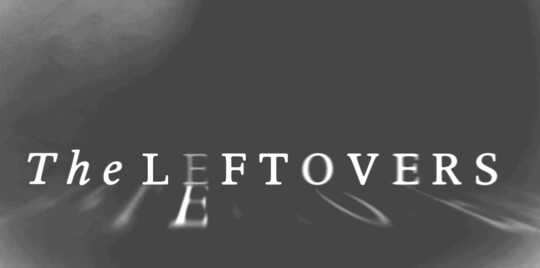- tags
- #internet
Currently, there is a working group at the IETF studying decentralisation in the internet - Decentralisation of the Internet Research Group (DINRG).
According to its charter, its objectives include:
Currently, there is a working group at the IETF studying decentralisation in the internet - Decentralisation of the Internet Research Group (DINRG).
According to its charter, its objectives include:
I dreamed that it is night and I am lying in my bed (the foot of my bed was under the window, and outside the window there was a row of old walnut trees. I know that it was winter in my dream, and night-time). Suddenly the window opens of its own accord and terrified, I see that there are a number of white wolves sitting in the big walnut tree outside the window. There were six or seven of them. The wolves were white all over and looked more like foxes or sheepdogs because they had big tails like foxes and their ears were pricked up like dogs watching something. Obviously fearful that the wolves were going to gobble me up I screamed and woke up.
This is a note about an interesting article I just read, The New Control Society by Jon Askonas.
The core idea, that social control has moved from a ‘disciplinary’ model, where power is centralised, to a ‘protocol’ model of control, where power is decentralised, is not new at all. As the author mentions, one of the first, clearest articulations of this shift is found in Deleuze’s Postscript on the Societies of Control, but we can also see clear articulations of this concept in Alexander Galloway’s book Protocol (2004). The New York Times also had a recent story about the “Strange, Post-Partisan Popularity of the Unabomber”, which looks at how some of the Ted Kaczynski’s ideas relating to technological control have found advocates across the political spectrum. You could also say that some of Slavoj Zizek’s work is tangentially related. Although he doesn’t reference the idea of the ‘protocol’ as the mechanism of social reorganisation, he does frequently reference the shift in ideology from Soviet communism to ‘western’ capitalism, sometimes summarised by reference to Coca-Cola. Whereas in Soviet times you were commanded to ‘obey’, in capitalist times you are encouraged to ’enjoy!’.
I was just reading a great post by Geoff Huston about the IPv6 transition.
In it he discusses the idea that the original 1980’s model of an internet with an end to end address space has been eclipsed by NAT techniques, CDNs, the increased importance of names over numbers, and so on.
A note on some thoughts around ‘data’. Inspired, in the first instance, by this discussion on hacker news.
In relation to this line by Hickey:
In 1967, Roland Barthes published his influential essay “The Death of the Author”. The essay was a key reference point in the structuralist and post-structuralist movements and called for the abandoning of the idea of the ‘author’ as the focal point for meaning when interpreting a text. According to structuralist theories of language, meaning arises through a variety of factors (grammar, culture, history, etc.). Seeing the meaning of the work as the product of a single mind (the ‘author’) misses this diversity of perspectives at the heart of language.
In a certain sense, the measure of hermeneutics is understanding. Through careful interpretation, we begin to grasp the meaning of the text. Through careful listening and active engagement, I begin to understand, more deeply, what you are communicating to me. This is the heart of hermeneutics, this active movement toward understanding the meaning of something. The movement from uncertainty toward clarity.
Some alternative formulations of Chaos, taken from Chaos: Making a New Science, by James Gleick
The complicated, aperiodic, attracting orbits of certain (usually low-dimensional) dynamical systems.
- Philip Holmes
A kind of order without periodicity.
An (in)famous concept from the hermeneutic philosophy of Martin Heidegger.
Difficult to explain/simplify, but I will try my best here.
I think a good starting point for thinking about this idea is David Foster Wallace’s commencement speech for the graduates of Kenyon College.
I am rooted, but I flow. ― Virginia Woolf
The concept of appropriation is one of the key ideas within hermeneutic philosophy.
It arises from the idea that we are embedded (thrown) into a world. The notion of ‘world’ is important here, and distinct from the general usage of the term. For example, Heidegger famously distinguished between different ’levels’ of worldhood:
The term ‘concrescence’ was coined by Alfred North Whitehead and figures strongly in his systematic account of process.
Roughly, it means the coming together of multiples into a unity.
A difficult term to explain in a brief note, but I’ll try anyway.
Phenomenology is a philosophical approach that aims to move away from the subject-object division that pervaded modern philosophy and science prior to the 20th century.
An influential philosopher of technology.
I putting this note here more as a reminder to go an do some actual research on this topic. This is not in any way an authoritative note.
The Fallacy of Misplaced Concreteness is one of those philosophical ideas that has stayed with me ever since someone first told me about it. These are some notes about it. Please do not take them to be in any way authoritative.
One of the most noticeable things about Gemini is that it is text-based. Sure, it can support images but, depending on the client, these are mostly left hidden. Gemini gains a lot of its identity from this emphasis on text. One of the first things you’ll notice if you compare an average web page and a page on Gemini is that one is filled with images and highly visual, while the other is just a wall of text.
:END:
The second characteristic of minor literatures is that everything in them is po- litical. In major literatures, in contrast, the individual concern (familial, marital, and so on) joins with other no less individual concerns, the social milieu serving as a mere environment or a background; this is so much the case that none of these Oedipal intrigues are specifically indispensable or absolutely necessary but all become as one in a large space. Minor literature is completely different; its cramped space forces each individual intrigue to connect immediately to politics. The individual concern thus becomes all the more necessary, indispensable,
A series of posts by James Williams.
This reduction of the real to the possible is exactly what Deleuze seeks to avoid, because he wants the potential of radical novelty in every part of his system. When I called this series of posts ‘Deleuze’s timed logics’ it was an allusion to Arthur Prior, temporal logic and tense logic. For Prior, the difficulty of time for logic is a problem of undecided possibilities in the future. For Deleuze, the problem of time for logic is the difficulty of how propositions are both decidable and undecidable at all times and beyond any set of possibilities.
I’ve been experiencing moments of melancholy and nostalgia over the past months. Nothing too intense, just notable. It’s an old, familiar feeling, but one I hadn’t felt in a long time.
The 4 hour conversation, available on youtube: Cage & Feldman
I originally wanted to upload this here so that I could talk about some of the topics that Cage and Feldman discuss. I realise now that that would be a futile task. This isn’t a conversation that can be ‘summarised’ or ’talked about’ very effectively.
Much of the Gemini ‘content’ I’ve found so far, at least, some of the most engaging and unique, centers on technical questions about Gemini itself - how to set it up, navigate it, write in it, etc. These questions are usually accompanied by musings on what we can then do with this new protocol or about what Gemini ‘means’. Neither the answers to the technical questions, nor the accompanying speculations, are fully concrete. This is because both how Gemini works and what it can do remain somewhat vague. Yes, the broad brush-strokes have been laid down, but the smaller details have yet to be filled in. This is not a bad thing at all. Gemini is still in its very early stages. Much of its appeal stems from its huge potential.
A problem:
A corresponding idea:
One way, as we know, is through sheer computational power, afforded only to the most wealthy and largest in scale. Do we, the ‘users’, have a choice in the shape of these maps? To an extent, but not a very large extent. The roadmap, the layout of the web, is like our gps. We can input destinations and even set some quasi-meaningful markers (‘home’, ‘work’) that help ‘personalise’ our gps, but not much else. Our gps is extremely efficient and effective at getting us to a desired destination. Nevertheless, we have to wonder whether our very human desire is really so uni-directional. What if, instead, we took responsibility ourselves for the task of map-making? What if we develop our own tools? These tools will inevitably be less powerful, less precise. But, isn’t that the point?
Lindelof, HBO, 2014-2017

As I mentioned in the initial post, the show persistently subverts the audience’s perspective by portraying both sides of a divide - between the religious and the secular - as being both ‘right’ and ‘wrong’. At the outset, this divide is staged in a heightened, dramatic fashion. The Guilty Remnant, dressed in white, literally clash, in a public space, with the ’normal’ townspeople. Again, although the trope is familiar - an ‘outside’ force encroaching upon a small community and threatening its order - its presentation is not. The initial, visual distinctions between ‘believers’ and ’non-believers’ soon gives way to ambiguity, introduced primarily through the shows central conceit - that 2% of the world population have mysteriously disappeared. If this is the case, then why should we side with the townspeople who try to continue as if nothing has happened? Why should we buy into secular forms of rationality and explanation, when they can’t account for the event that has just occurred?
Lindelof, HBO, 2014-2017

When I was an undergraduate, I took an English Literature class. One section of the module was on Macbeth, and the lectures were given by the Donegal playwright Frank McGuinness. He opened the series of lectures by announcing that Macbeth begins by asking us a single question: Do you believe in magic?
Lindelof, HBO, 2014-2017
 \
\
The Leftovers is about a lot of things. Too many things to write about here, unfortunately. Nora is my favorite character in the show, and Season 3 was my favorite season the first time I watched it. In attempting to write these posts, though, I ended up focusing mostly on Kevin, and on Season 2. Actually, much of the content for this review derives from the end of Season 2, when Kevin’s ‘dies’ two times. So, maybe this should just be called ‘an account of that really weird moment in that one American TV show’.
Tom McCarthy. Alfred A. Knopf, 2015

Incomprehensible, except when read as a footnote to Remainder. Then, it becomes an author’s expression of his own struggle with feelings of inadequacy in an (academic-literary) milieu dominated by cults of personality.
Amal El-Mohtar & Max Gladstone. Saga Press, 2019

To be sensitive to signs, to consider the world as an object to be deciphered, is doubtless a gift. But this gift risks remaining buried in us if we do not make the necessary encounters, and these encounters would remain ineffective if we failed to overcome certain stock notions. The first of these is to attribute to the object the signs it bears.